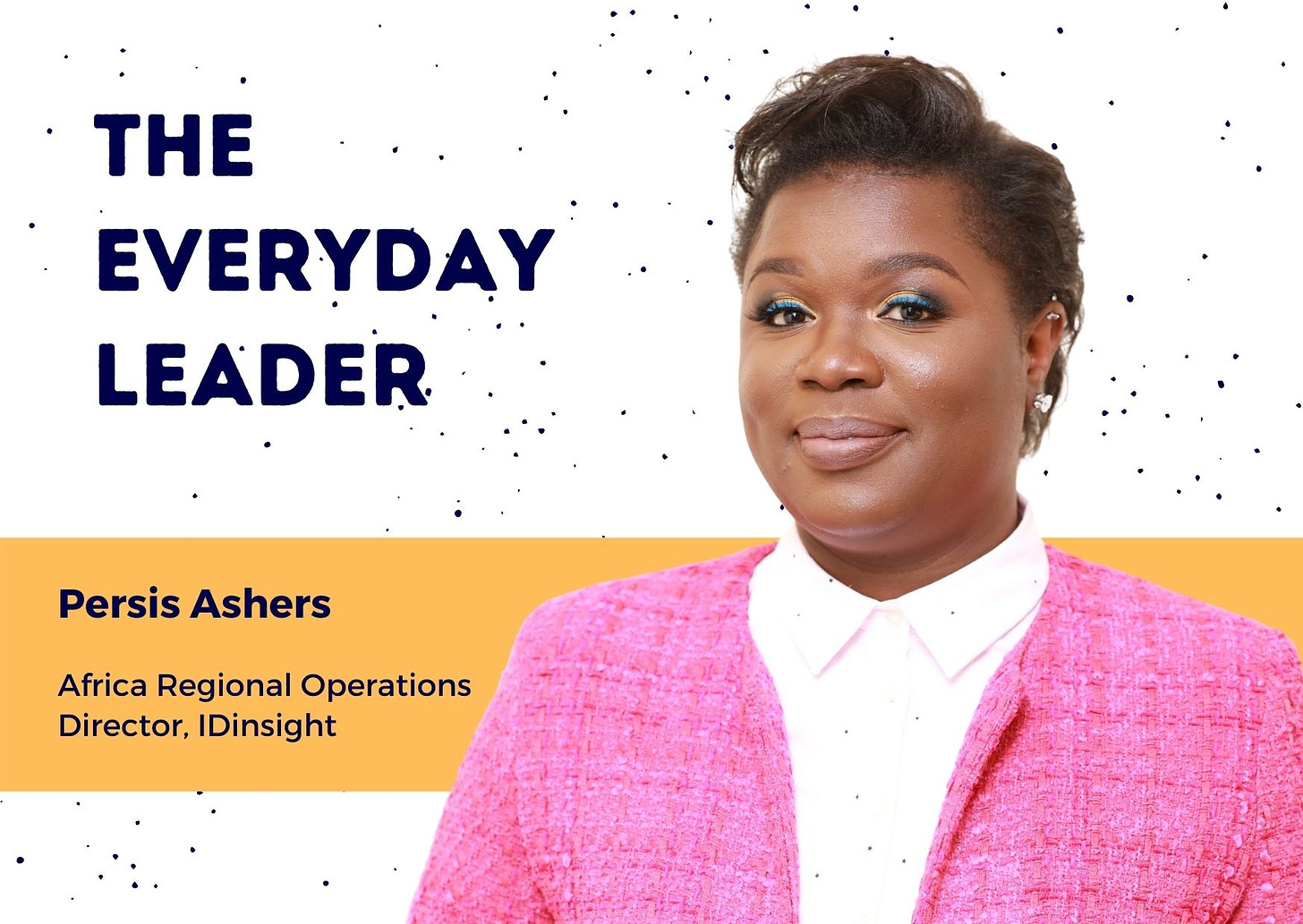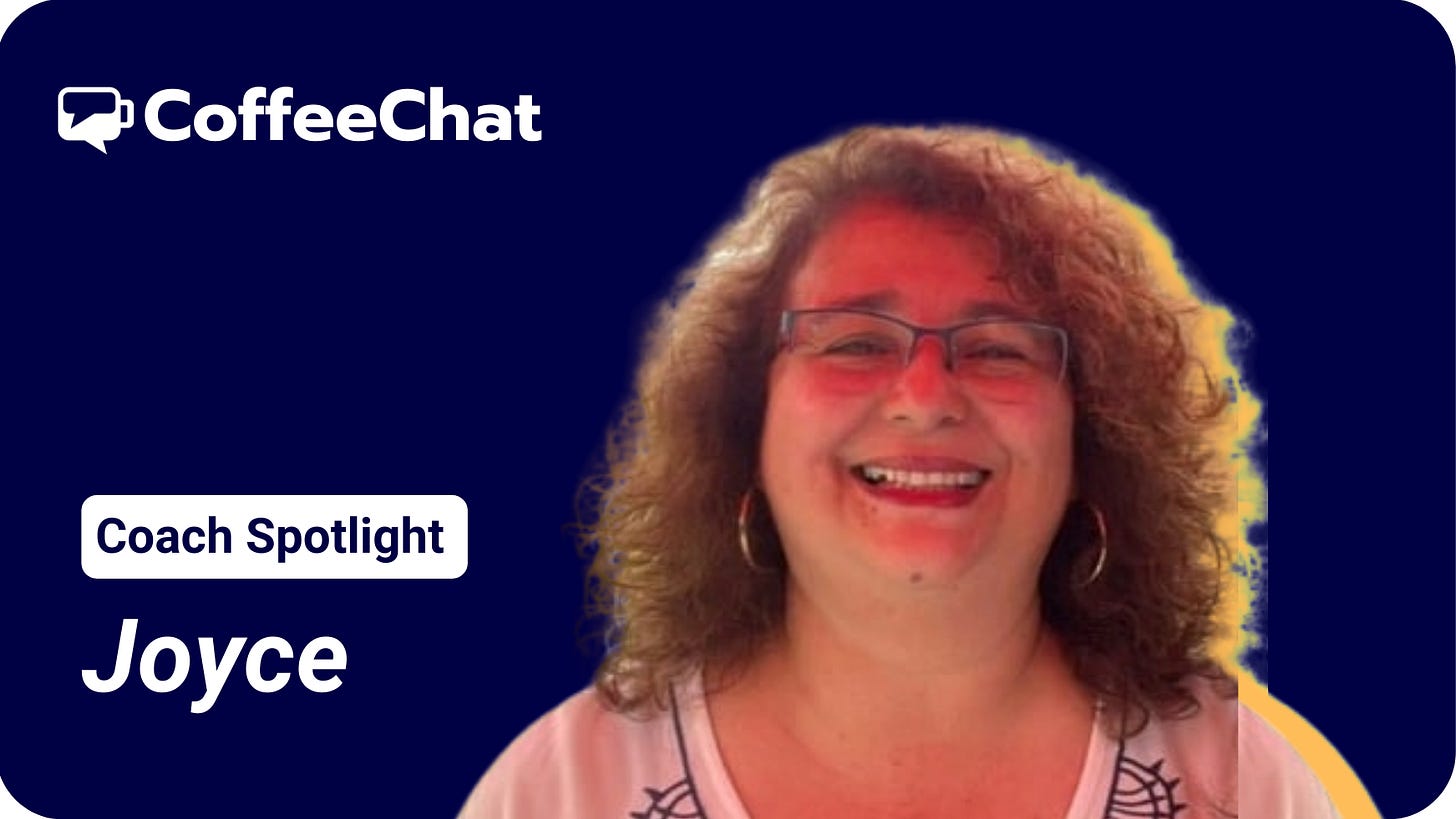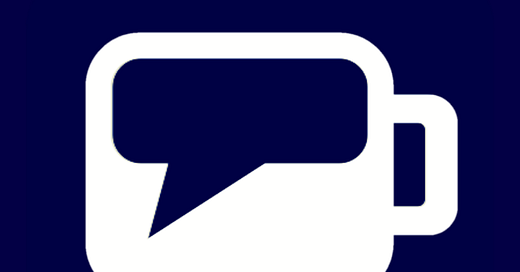
Hi everyone, here’s what we have for you this week:
Transitions are opportunities for learning. In this week’s episode of The Everyday Leader, Persis Ashers shares her experience working with a coach as she stepped into her new role as the Africa Regional Director of Operations at IDinsight.
How do you pick the right coach? We share 4 key questions to help guide your selection.
“Trust is a key element to be able to develop a coaching culture within a company.” In our latest Coach Spotlight, we hear how Joyce from Mauritius shows up as a coach in her workplace and with private clients.
Read on for more details…
Working with coaches during career transitions, leveraging company culture as a pillar for growth, and adapting to the future of work
Here are a few highlights from the conversation with Persis:
Transitions are opportunities for learning: Persis worked with a professional coach to help her prepare for a transition into a Director-level role at a new company. Her coach helped her realize the upcoming opportunities to learn and unlearn, and remain confident to bring her skills and experiences with her despite a new context. Persis has used coaches during other parts of her career and found them helpful for gaining clarity of perspective. Over the last couple of years some of those coaching conversations helped her realize that she prefers collaborating with multipliers - that she wants to be a leader who unlocks and enables the genius in her team. She recommends that all people managers that want to lead deliberately and enable genius read the book “Multipliers” by Liz Wiseman.
Company culture is a pillar for growth: IDinsight is just over 10 years old and is expecting to nearly double its headcount during 2022. One of Persis’ key long-term initiatives she owns is ensuring that IDinsight offices are great places to work, which is ultimately driven by the values and culture built over the years, but which must be continuously cultivated.
Companies must be deliberate about how they adapt to the future of work: Each leader needs to think carefully around talent planning that sets up their team building efforts for success. Decisions around recruitment, learning & development investments, digital tools, and compensation policies will impact retention and diversity & inclusion metrics, even more so than ever.
1:1 coaching is most effective when you are comfortable and confident speaking with your coach. We often feel most comfortable and confident opening up to those who we see as having a shared context or experience, and where there is clear alignment and understanding around the goals of the conversation. Therefore the selection process is very important to ensure you get the most out of your coaching experience. The coach selection process typically unfolds in two stages:
Identify suitable choices: Here you must narrow down your options to a number of final coaches to select from. With CoffeeChat, you are provided with a pool of recommended coaches for whom you can browse their profiles.
Conduct discovery sessions: Here you must confirm which option is the best fit. With CoffeeChat, you are encouraged to schedule a 1:1 discovery call, also called a “chemistry session”, with between 2-3 coaches, before committing to more forward with one of the coaches for the full coaching engagement.
Here are 4 important questions that you should keep in mind throughout these two selection stages:
Is there a good chemistry? This is highly subjective, yet critically important. If you aren’t ready to open up and honestly reflect on key areas of stress and vulnerability, it will be difficult to make meaningful progress during coaching sessions. You want to find a coach that you “click” with, which is something that can be hard to describe, but you know it when you feel it. Do your part to give the coach a chance of genuinely connecting with you by making sure to show up for the discovery session with a positive mindset and not necessarily treating it like a formal interview. Remember, the coach also wants to check if you are going to be a good fit for them as well.
Does the coach understand your context? While coaching is designed to not require that the coach have the full context of the participant (the coachee), it can certainly help if the coach has a decent baseline understanding of your day-to-day professional experience, so you feel less need to share extra details to catch them on your reality. Therefore during both the narrowing down and the discovery sessions, try to look for whether the coach has had experience either in similar roles, similar workplace settings, your city or country, or the same industry.
Is their coaching style relevant for your goals? While there are similarities and best practices in how most coaches organize the flow of a coaching engagement over 6-12 sessions, each coach is unique in how they work with each of their clients. To help you get a clearer picture of what its actually like conducting coaching sessions with them, there are two questions you should ask during your discovery session:
1) Ask them to share an example of a recent client story, i.e. the type of challenge or growth area the client was working on, how the coach supported them, and what the outcome was. The coach should be able to share an anonymized version to illustrate how their coaching methodology is applied. The example will ideally mirror certain elements of what you yourself will experience.
2) Mention one specific area or soft skill that you are working on professionally, and ask how the coach might structure their sessions to focus and improve in that area. The coach should be able to articulate several different coaching approaches you could consider. If what they share doesn’t seem like it will be impactful for you, feel free to challenge them to explain further why they believe it will be. If you don’t have an example of an area you want to work on, ask the coach how you would go about identifying the best area(s) to work on.
Will timelines and scheduling be feasible? Even if there seems to be a great fit, sometimes practicalities get in the way. This should come up in the discovery session if there is a deal-breaker, such as a language barrier (i.e. if your preferred language to reflect in is French, but your coach isn’t comfortable coaching in French), time zone (if it’s impractical to schedule sessions based on both of your locations and daily schedules), duration (perhaps the coach won’t be available for several months in the near future), or format preference (you prefer in-person, but the coach isn’t able to come for in-person sessions).
Joyce is a Meta Coach from Mauritius. Over the last 25 years, she has been working in the Learning & Development and Talent Management sectors as Coach, Team Coach, Trainer, Facilitator, Lecturer, Marketing Officer L&D Specialist and Learning & Development Manager.
What motivated you to become a coach?
In 2012-2014 I was going through very rough times in my personal life and wanted to understand my behaviour, and also understand the behaviour of other people in my life. I started to look for self-development course and I followed quite a number of them. A good friend of mine then introduced me to this new technique and framework and the forward looking aspect of coaching appealed to me. I started to follow a 3 module programme which culminated in 2015 in a 7-day bootcamp followed by 6 months of benchmarking and I then got certified. Then the journey began!
What superpower do you bring to your coaching?
I bring my passion for people, the belief that as long as someone really wants it, he/she can find his own solution. My Superpower is my ability to listen and be present with my clients whilst believing that the solution is in their hands, should they be willing to seek it.
What is something you do during a coaching session with a client that you wouldn't do during a check-in with a team member?
I love to use NLP patterns with my clients, and after a good “framing”, I encourage them to experiment with those. The patterns can really enrich a session and can prove to be very useful tools well after the coaching session itself.
What key conditions within a company make it more supportive of the use of coaching?
Trust is a key element to be able to develop a coaching culture within a company. This trust comes from the knowledge that the management and line managers believe that coaching can help them and their employees to better understand themselves and grow further as team members, leaders and individuals.
How would you describe your coaching style to a prospective new client?
My coaching style is ruthlessly compassionate, meaning that I will ask challenging questions, and push my clients out of their comfort zone while providing a safe, non-judgemental space for them to be able to smoothly unleash their potential.









